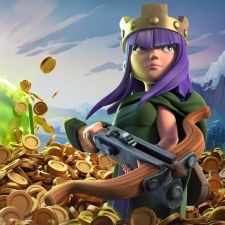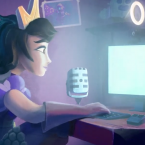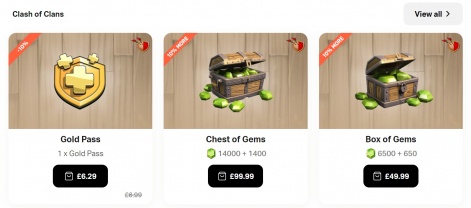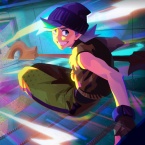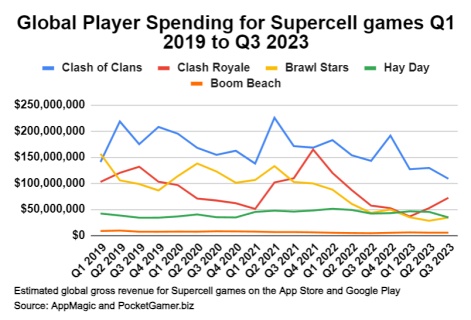Supercell's 2023 financial results are set to be unveiled this week. Ahead of the announcement, we're republishing the below analysis on changes at the company following last year's financials and CEO Ilkka Paananen's appraisal of Supercell's recent past and plans for the future. This article was originally published on December 18th, 2023.
The world’s most famous mobile games developer, Supercell, has found itself in a tricky spot.
The Finnish company’s revenue fell by 6% year-over-year in 2022 to a still very healthy €1.77bn. EBITDA, meanwhile, fell by 14% Y/Y to €632m. But the real story is how Supercell has actually faced a decline for many years, perhaps propped up by the pandemic boost many games publishers saw in 2021.
In 2016, Supercell reported revenue of €2.1 billion and €917 million in EBITDA. Each year after that, it saw a decline, dropping to €1.3 billion revenue in 2020 and €407 million EBITDA - still very enviable figures for most publishers. In 2021, there was a significant boost to €1.89 billion revenue and €734 million before dropping back again in 2022.
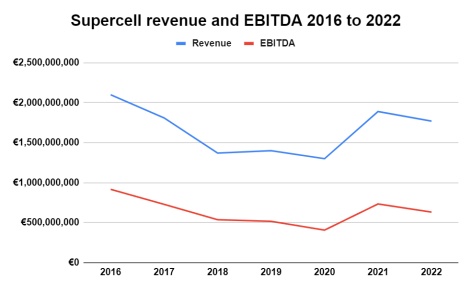
For comparison, as Supercell noted itself, Newzoo reports player spending in the mobile games market fell by 6.7% overall - but that doesn’t include direct-to-consumer web stores - while mobile market insights specialist Data.ai claims mobile game consumer spend fell by 5% Y/Y.
But however you cut it - Supercell is in decline and has not had a global launch since Brawl Stars on December 12th, 2018. The mobile games market has evolved and its most prolific developer has struggled to do the same.
The next chapter
At the beginning of the year, Supercell CEO Ilkka Paananen published his annual blog post on the state of play at the company. Calling it “The next chapter of Supercell”, the article provided an honest appraisal of the company’s successes and failures, while proposing a manifesto for its future.
The company’s mission to “create great games” remains the same - a dream not unique to Supercell - but its approach was set to change. A company famous for its small ‘cells’ of top talent building the world’s most famous mobile games was now proposing larger teams for live ops, and with it a different approach to the foundations of its multi-billion dollar success.
The key objectives were:
- We always have to figure out how to create ANOTHER great new game. (And IF we do, then make it better!)
- We have to keep making that first live game better every day, week, month, and year…forever.
And, while Paananen admitted Supercell doesn't have all the answers to solve its current challenges, he pointed to some key changes for the company as it looks to adapt to the new landscape:
- “We will improve and expand our internal engine, maybe even to rival third-party engines”
- Exploring other platforms outside of mobile
- Larger live ops teams
- Continued investment in other companies
- Opening up to remote-work and junior employees
So what has Supercell done in 2023 to turn around its fortunes and return to the forefront of mobile innovation and success? While it still hasn’t launched a new game globally, it’s been very busy.
Click here to view the list »
